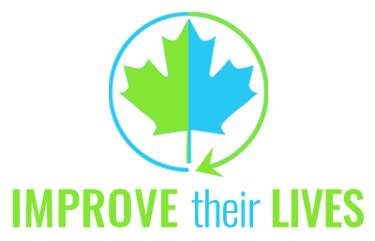ℹ️ Don't miss a beat! Subscribe to receive our free newsletters.

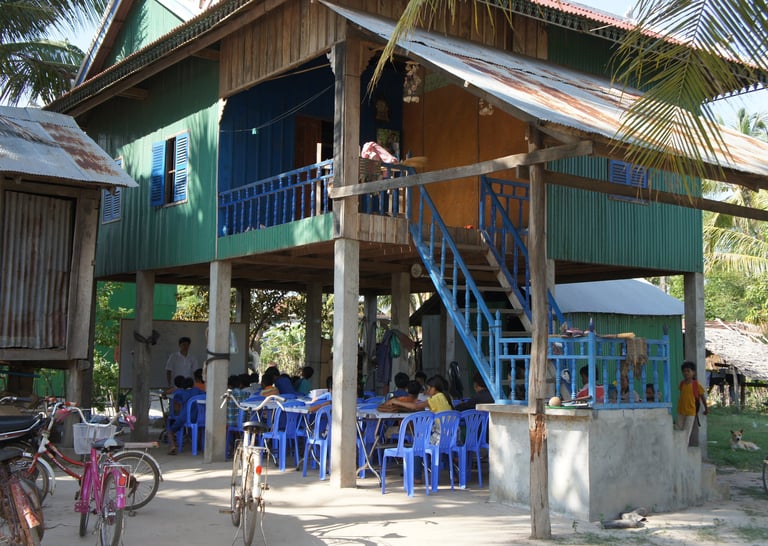

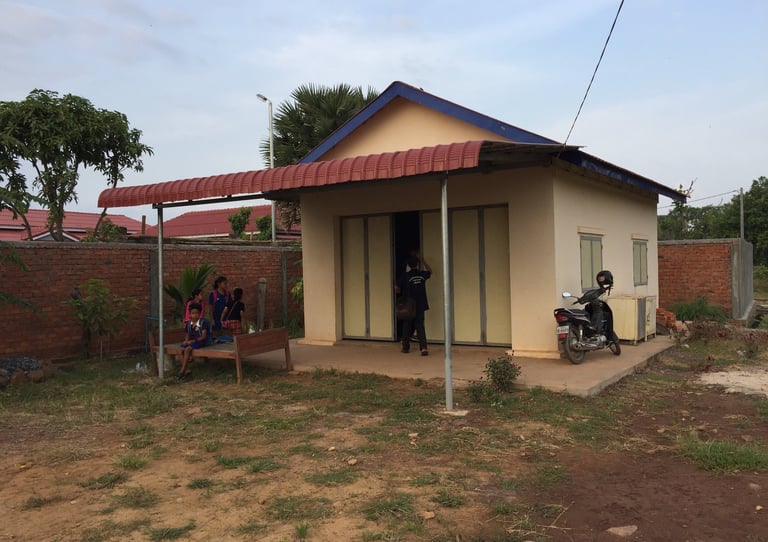



"Give a person a fish, and you feed them for a day. Teach a person to fish, and you feed them for a lifetime."
Building sustainability requires teaching people to fish. That's why we focused on education – specifically teaching English – so that people can have a competitive advantage in employment to make long-term improvements in their lives.
The New Building
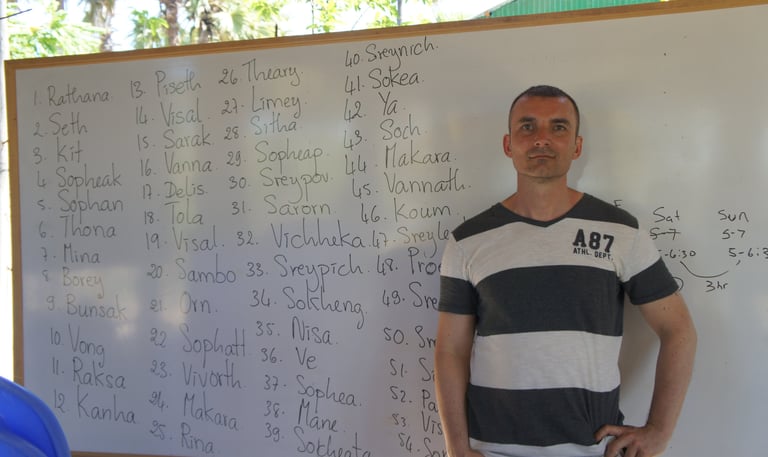

While visiting Cambodia, Mark discovered a free English school run by the Buddhist Library charity, located about 12.5 km outside Kampot. There, he met a local teacher, Synath, who lives in Troey Koh. After some discussions, Mark suggested providing English lessons for the children in Troey Koh, similar to the English school, as the island lacked such an opportunity. What started as a simple idea quickly gained momentum, even though we didn’t have everything figured out at the time.
Synath spread the word in the village, and a local villager kindly offered their ground floor to host the classes on weekends. When registration day arrived, more than 50 eager students, ranging from 9 to 17 years old, showed up, excited to learn English.
Given the overwhelming turnout, we settled on offering two 90-minute classes every Saturday and Sunday. Mark and Synath went shopping for tables, chairs, whiteboard and essential supplies to start the classes. With no dedicated space of our own, the students helped set up and pack up tables and chairs before and after each class.
In May 2015, we launched an English program in Kampot, a province in southern Cambodia, on Troey Koh - meaning “Fish Island.” The program’s mission was to promote sustainability through education, offering impoverished children the chance to learn English for free, ultimately increasing their prospects for good jobs.
Affectionately named Little Fish English School, after the island’s nickname, the English program was entirely self-funded for five years in operation.
As the program grew, we expanded our curriculum to offer three levels of classes: Beginner, Intermediate, and Advanced. We welcomed more new students into the Beginner class, while advancing others to Intermediate. To prepare the strongest students for employment, we developed a curriculum for the Advanced class, focusing on job-readiness skills, particularly in the hospitality industry — an essential sector in Kampot and across Cambodia.
To accommodate the growing demand, we expanded classes to Fridays, Saturdays, and Sundays, while keeping each class at 90-minute per day for each level.
See Resources below for the advanced curriculum we and our friends developed from the ground up.
Our Reflections
Running an English program overseas presented a number of challenges, particularly in a rural village like Troey Koh. Two most significant hurdles we faced:
Lack of Consistent Attendance: Due to the students’ socio-economic realities, many parents didn’t fully grasp the long-term value of the program. They often expected their children to contribute at home by working or helping with household chores. The students also felt overloaded since they already attended school six days a week. To encourage better attendance, we introduced a range of incentives, such as providing occasional snacks and food during each class, setting up a pen-pal program with students from Toronto, and offering a 50kg bag of rice to two students every month between November 2017 and January 2020. We even provided a new bike for those two students to help them get to class more easily. Despite these efforts, attendance remained inconsistent for most students, with only two (who received rice support and bike) consistently attending.
Lack of Sustained Progress: While we maintained regular weekly check-ins with the local teacher and fine-tuned our approach for each class level, the pace of progress in the Beginner and Intermediate classes was slower than we hoped, largely due to attendance issues. Even for students who did make progress, sustaining it over time proved to be a challenge. On a more positive note, the Advanced class showed more promising results, with stronger attendance and steady improvement.
After five years of operation, we took a hard look at the overall impact and costs of the program. In January 2020, when the COVID-19 pandemic was declared, we made the difficult decision to pause the program.
However, despite the challenges, we are incredibly proud of the legacy we left behind in Troey Koh. The program touched many lives and provided students with opportunities they wouldn’t have had otherwise. More importantly, the school shelter is still there for the students to come and informally learn.
Check out the blogs below for some of the key highlights and stories that defined this journey.
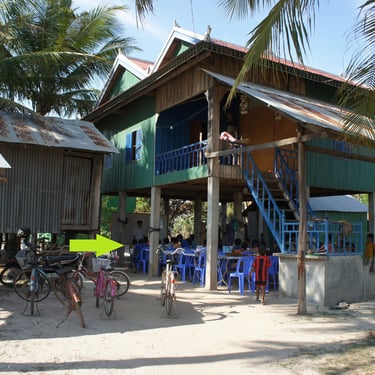
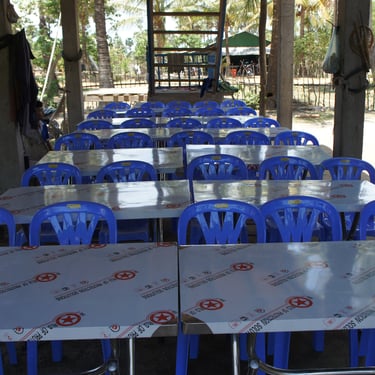
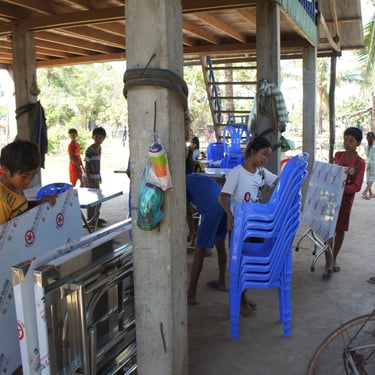
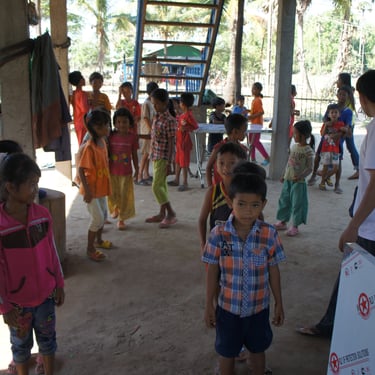
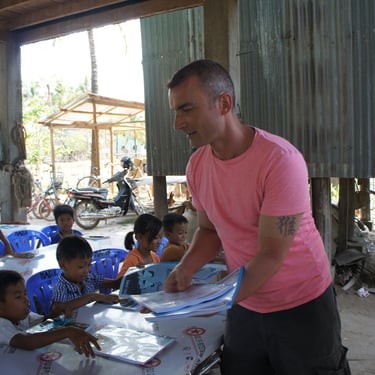
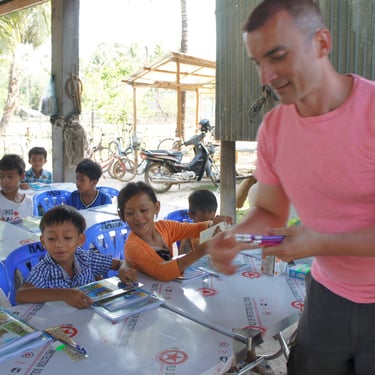
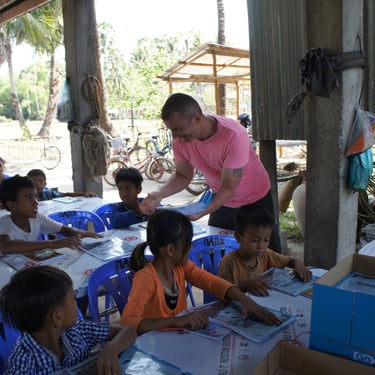
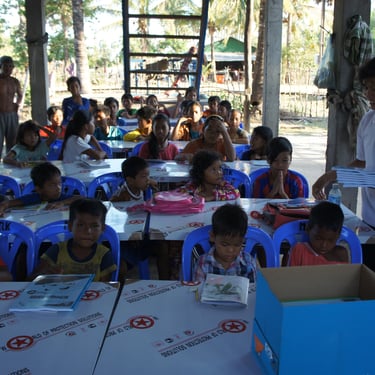
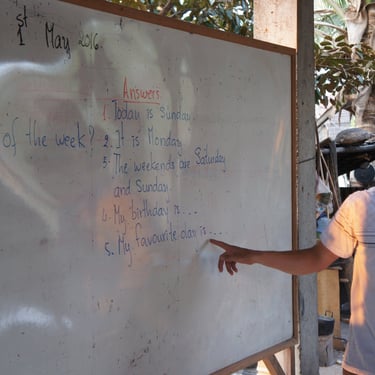
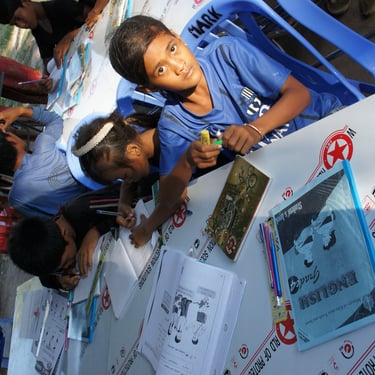
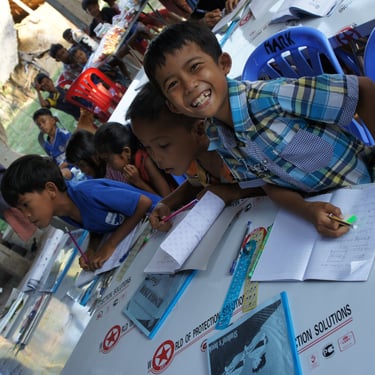
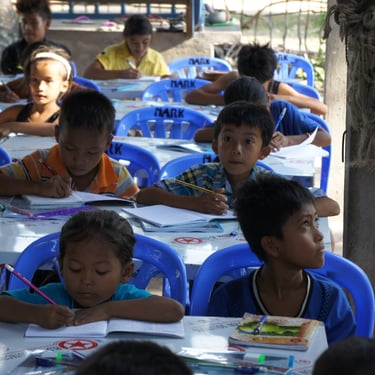
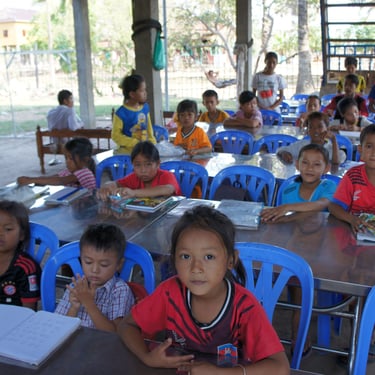
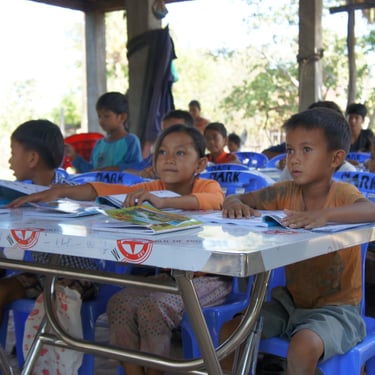
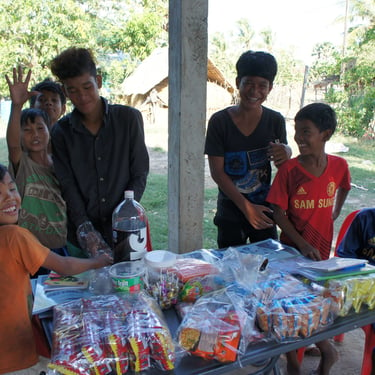
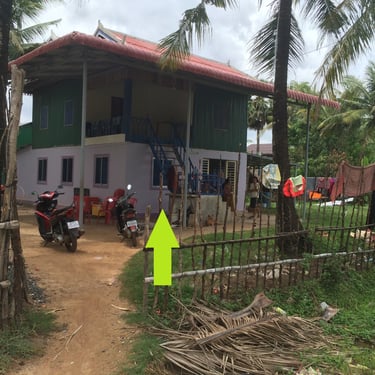
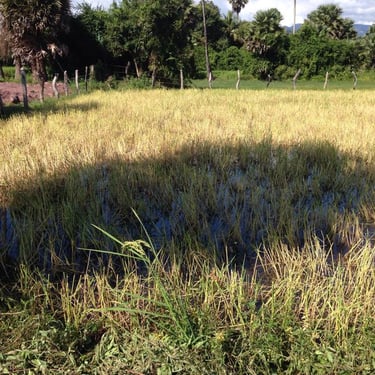
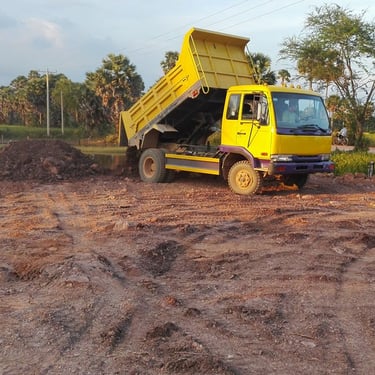
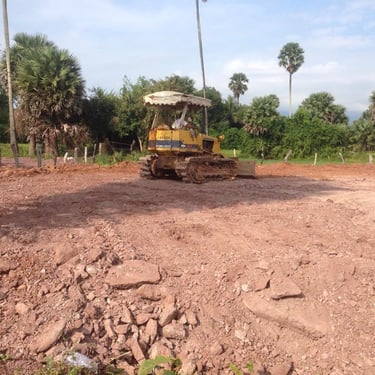
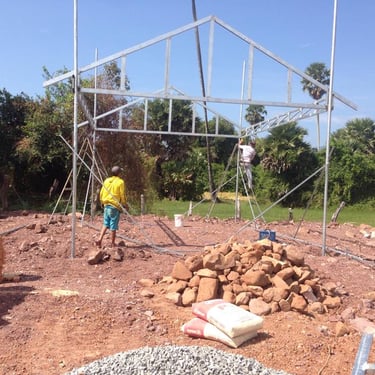
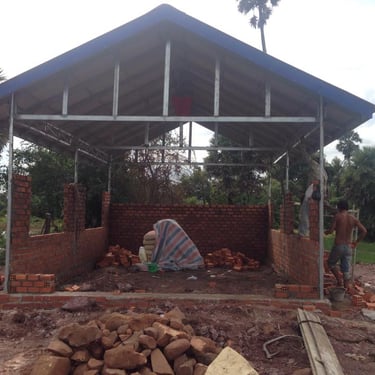
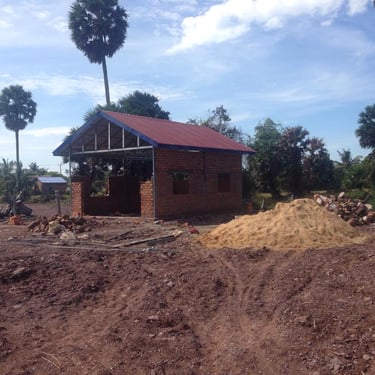
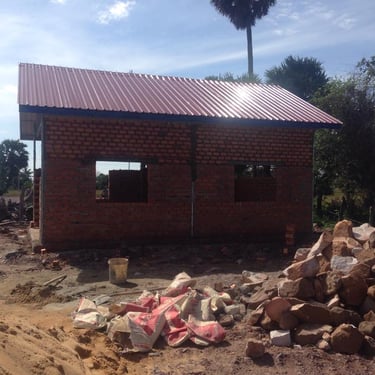
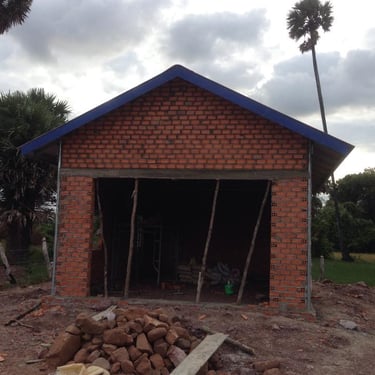
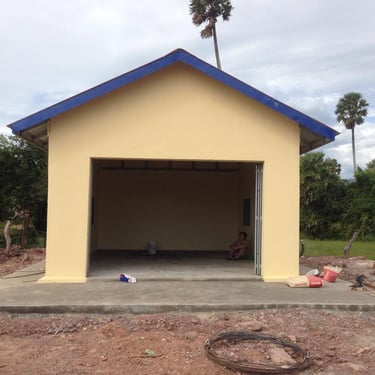
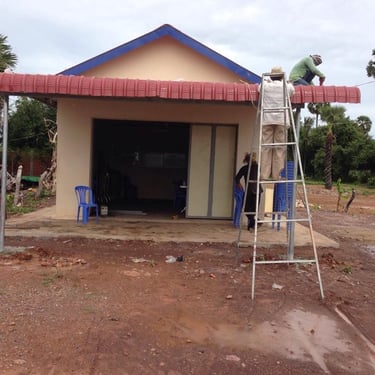
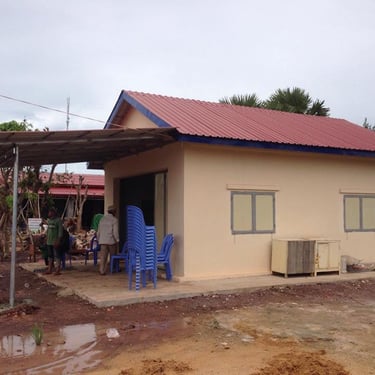
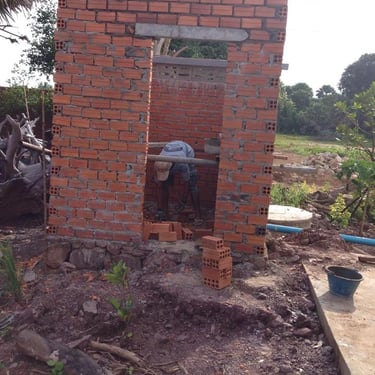
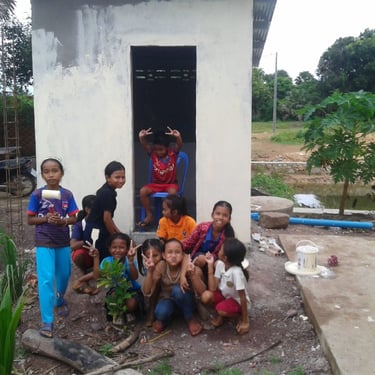
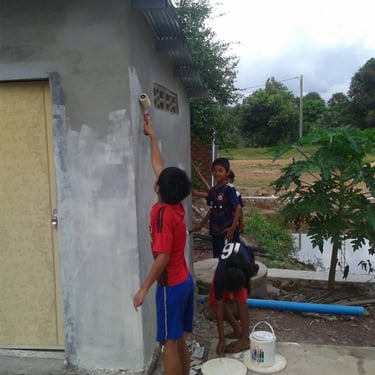
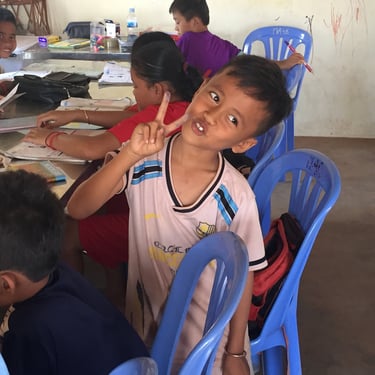
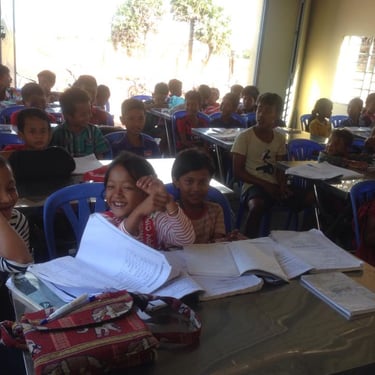
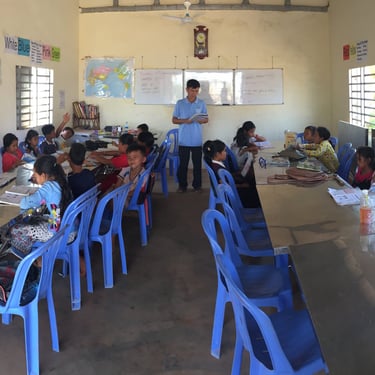
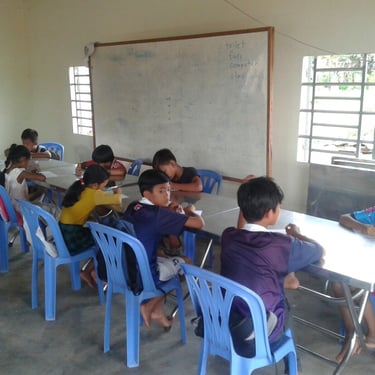
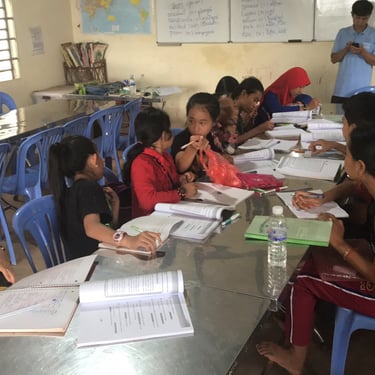
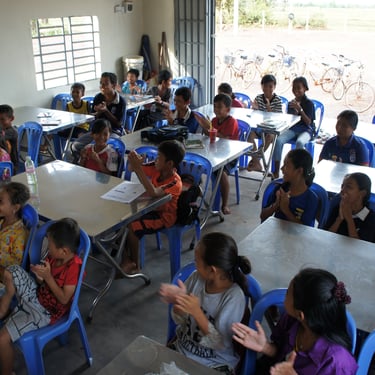
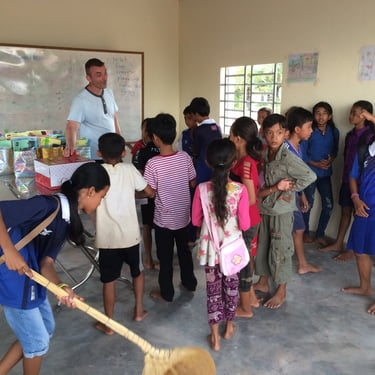
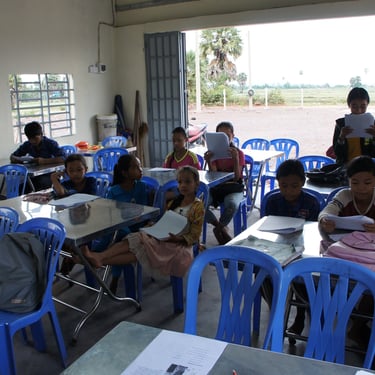
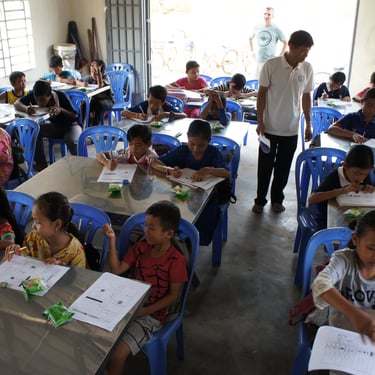
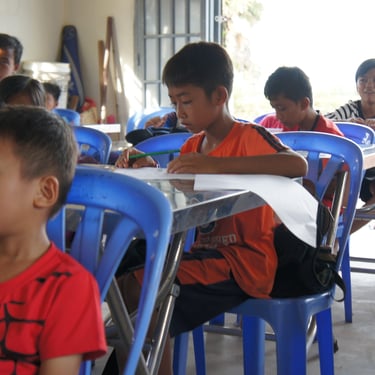
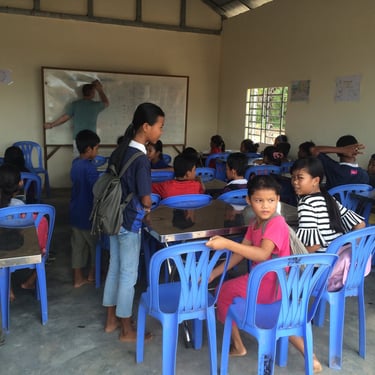

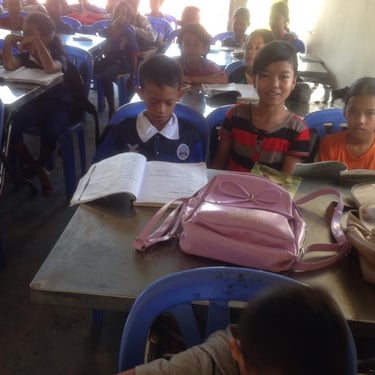
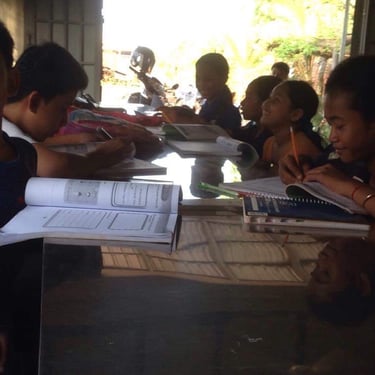
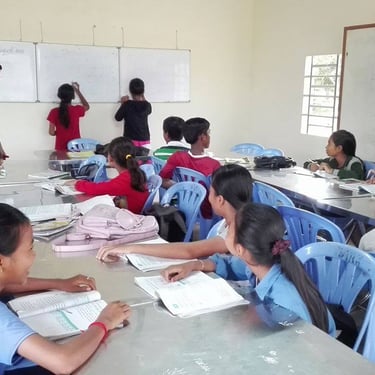
The Beginning
Later that year, the villager who had graciously allowed us to use their space informed us they needed it for their son’s growing family. We quickly brainstormed alternatives and, with Synath’s help, secured a piece of land from his mother-in-law in a nearby rice field — another idea that took off unexpectedly.
Construction began, with about 80 truckloads of dirt leveling the foundation. During this time, classes continued at the original location until the new building was ready. The timing was perfect: by November 2016, we moved into the new facility, providing a dedicated space for the students to come and learn. We added a canopy and washroom to the building soon after — something the students had requested. In fact, some of the students pitched in to paint the washroom after its completion, and took turn to thoroughly maintain it on a regular basis.
The Expansion
Resources
Financial Tracker for English Program in Cambodia
Advanced curriculum: Chapter 1 - Working in a guesthouse and Chapter 2 - Working in a restaurant
Blog updates related to our legacy program:
